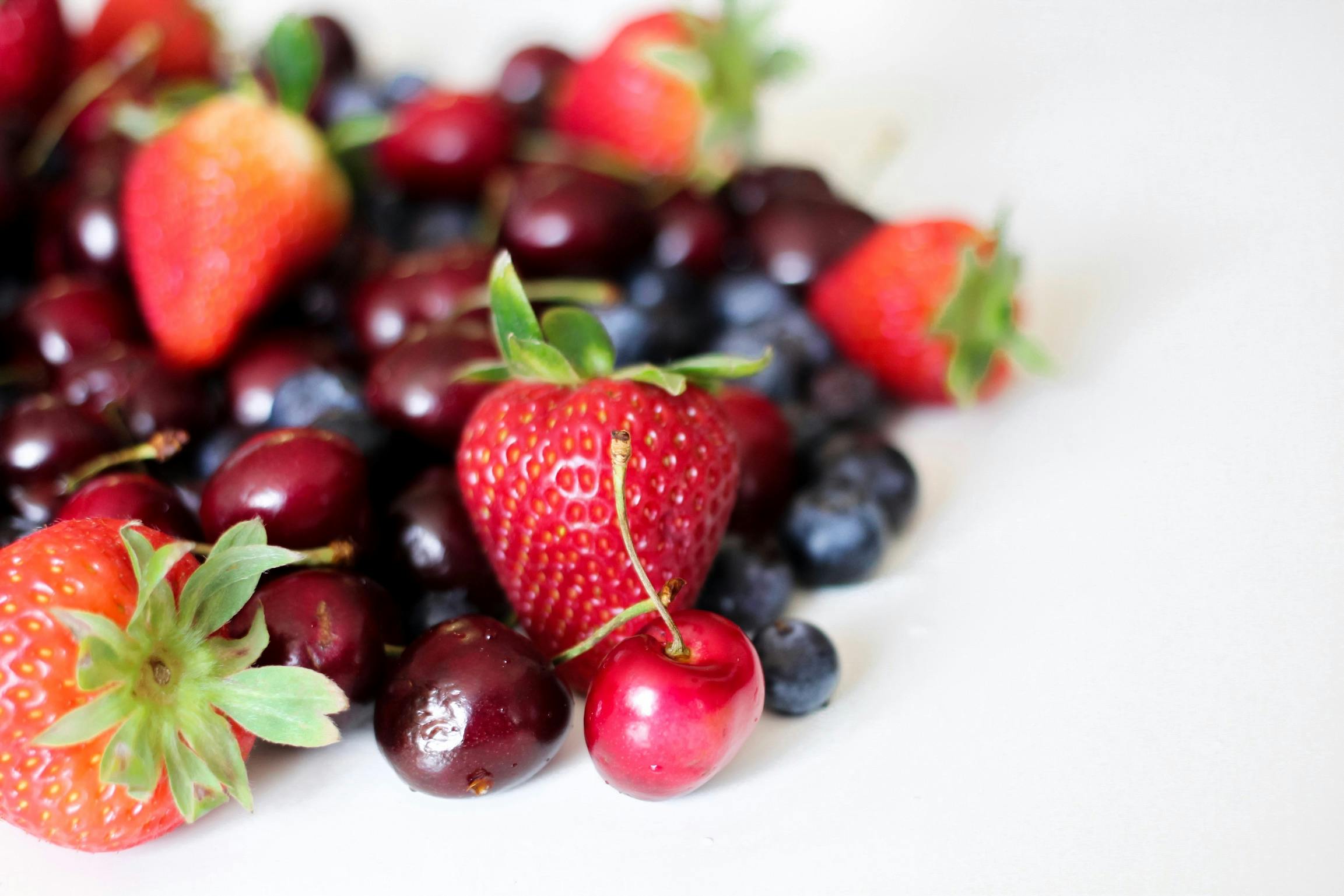Embarking on your pregnancy journey is an extraordinary experience filled with excitement and an overwhelming desire to provide the best care for yourself and your growing baby. One of the most crucial aspects of this journey is ensuring that you maintain a balanced and nourishing diet throughout your pregnancy.
At Motherhood Center, we understand the importance of nutrition during this time. As a trusted resource for families in Houston, Texas, for over two decades, we are dedicated to providing expectant mothers like you with the information and support you need to thrive during pregnancy.
In this article, we will explore the best foods to eat while pregnant, focusing on nutrient-rich options that will support your health and your baby’s development. From calcium-rich dairy products to antioxidant-packed fruits and vegetables, we’ll cover a variety of essential food groups to include in your pregnancy diet.
Calcium-Rich Foods
During pregnancy, maintaining adequate calcium intake is crucial for the development of your baby’s bones and teeth, as well as for supporting your bone health. Incorporating calcium-rich foods into your diet can help ensure that both you and your baby receive the necessary nutrients for optimal health.
Varieties of White Cheese
Cheeses such as Swiss, mozzarella, Parmesan, and feta are not only delicious but also excellent sources of calcium and protein. What sets these cheeses apart from their yellow counterparts is their lower saturated fat content, making them a healthier choice during pregnancy. Mozzarella cheese sticks are particularly convenient for on-the-go snacking, providing a quick and easy way to boost your calcium intake.
Avocado: More Than Just Guacamole
Beyond being a tasty addition to salads, sandwiches, and smoothies, avocados are also a great source of calcium. Rich in healthy fats, folic acid, and vitamin E, avocados offer a versatile way to incorporate essential nutrients into your pregnancy diet. Whether mashed on toast or blended into a creamy dressing, avocados provide a nutrient-packed boost to support both you and your baby’s health.
Antioxidant-Packed Berries
Berries are not only delicious but also pack a powerful nutritional punch, making them an excellent choice for expectant mothers. Whether enjoyed on their own, sprinkled over cereal, or blended into a refreshing smoothie, berries are a versatile and flavorful addition to your pregnancy diet. In addition to their naturally sweet taste, berries are known for their high antioxidant content, which can help combat inflammation and protect against cell damage.
Versatile and Nutrient-Dense
Berries such as strawberries, blueberries, raspberries, and blackberries are rich in vitamins, minerals, and phytochemicals that are essential for both maternal and fetal health. These tiny fruits are particularly high in vitamins A and C, which play key roles in immune function and tissue repair. Additionally, berries are packed with dietary fiber, which can help alleviate constipation—a common discomfort during pregnancy.
Incorporating berries into your meals and snacks is not only a delicious way to satisfy your sweet tooth but also a smart way to ensure that you’re meeting your nutritional needs during pregnancy. Whether enjoyed fresh, frozen, or dried, berries offer a convenient and nutritious option for expectant mothers looking to nourish themselves and their growing babies.
Dark Leafy Greens
Dark leafy greens are nutritional powerhouses that should be a cornerstone of any pregnancy diet. Packed with vitamins, minerals, fiber, and antioxidants, these greens offer a myriad of health benefits for both expectant mothers and their developing babies. Incorporating a variety of dark leafy greens into your meals can help ensure that you’re meeting your nutritional needs during pregnancy and supporting optimal fetal growth and development.
Nutrient Powerhouses for Mom and Baby
Greens such as spinach, kale, mustard greens, and Swiss chard are rich in essential nutrients, including folate, iron, calcium, and vitamin K. Folate, in particular, is crucial during pregnancy as it plays a key role in fetal development, helping to prevent neural tube defects. Dark leafy greens are also excellent sources of iron, which is essential for maintaining healthy red blood cells and preventing anemia—a common concern during pregnancy.
Incorporating dark leafy greens into your meals is easy and versatile. Add a handful of spinach to your morning smoothie, toss kale into a hearty salad, or sauté Swiss chard as a nutritious side dish. By including these nutrient-packed greens in your diet, you can ensure that you’re providing your body and your baby with the essential nutrients they need to thrive during pregnancy.
Protein Sources
Protein is an essential nutrient for pregnant women, playing a crucial role in the growth and development of both the mother and the baby. While many associate protein with meat-based sources, there are a variety of protein-rich foods that can be included in a pregnancy diet, catering to different dietary preferences and restrictions. In this section, we’ll explore some diverse protein sources that can help expectant mothers meet their nutritional needs and support a healthy pregnancy.
Diverse Protein Options for Every Palate
In addition to meat-based sources such as poultry, beef, and fish, numerous plant-based protein options can provide expectant mothers with the protein they need for a healthy pregnancy. Eggs, for example, are a versatile and nutrient-dense protein source that can be enjoyed in a variety of ways, from scrambled to hard-boiled. Additionally, dairy products such as yogurt, cheese, and milk are excellent sources of protein and calcium, essential for bone health during pregnancy.
For those following a vegetarian or vegan diet, legumes such as lentils, chickpeas, and black beans are excellent sources of protein and fiber. These versatile legumes can be incorporated into soups, salads, stews, and even burgers, providing a hearty and nutritious option for expectant mothers looking to meet their protein needs without consuming meat. By incorporating a variety of protein-rich foods into their diet, pregnant women can ensure that they’re getting the nutrients they need to support a healthy pregnancy and the optimal growth and development of their baby.
Folic Acid-Rich Whole Grains
Folic acid, also known as folate, is a crucial nutrient for pregnant women, playing a vital role in the early development of the baby’s neural tube. Incorporating folic acid-rich foods into your diet during pregnancy can help reduce the risk of neural tube defects and support overall fetal growth and development. Whole grains are an excellent source of folic acid, making them an essential component of a healthy pregnancy diet.
Whole Grains for Baby’s Development
Whole grains such as whole wheat, brown rice, quinoa, and oats are rich in folic acid, as well as other essential nutrients such as fiber, iron, and B vitamins. These nutrients are crucial for maintaining overall health during pregnancy and supporting the growth and development of the baby. Including a variety of whole grains in your diet can help ensure that you’re getting an adequate intake of folic acid and other essential nutrients to support a healthy pregnancy.
Incorporating whole grains into your meals is easy and delicious. Swap out refined grains for whole grain options whenever possible, such as choosing whole wheat pasta instead of white pasta or opting for brown rice instead of white rice. You can also experiment with different whole grains in recipes, such as adding quinoa to salads or using oats in homemade granola bars. By including a variety of folic acid-rich whole grains in your pregnancy diet, you can help support your baby’s development and ensure a healthy pregnancy.
Cruciferous Vegetables
Cruciferous vegetables, named for their cross-shaped flowers, are nutritional powerhouses that offer a multitude of health benefits, particularly during pregnancy. Rich in vitamins, minerals, and phytochemicals, these vegetables play a vital role in supporting maternal health and fetal development. In this section, we’ll explore the importance of incorporating cruciferous vegetables into your pregnancy diet and highlight some of the top options to consider.
Protecting Baby with Phytochemicals
Cruciferous vegetables such as broccoli, cauliflower, Brussels sprouts, and cabbage are packed with nutrients that are essential for both maternal and fetal health. These vegetables are high in vitamins, particularly vitamin C and vitamin K, as well as soluble fiber, which can help support digestion and prevent constipation—a common discomfort during pregnancy. Additionally, cruciferous vegetables are rich in phytochemicals, compounds found in plants that have been linked to various health benefits, including reducing the risk of certain cancers.
Incorporating cruciferous vegetables into your pregnancy diet is simple and delicious. These versatile vegetables can be enjoyed in a variety of ways, from roasting and sautéing to steaming and stir-frying. Try adding broccoli and cauliflower to pasta dishes or salads, roasting Brussels sprouts as a tasty side dish, or incorporating cabbage into soups and stir-fries.
Omega-3-Rich Foods
Omega-3 fatty acids are essential nutrients that play a critical role in the development of your baby’s brain and eyes during pregnancy. Incorporating omega-3-rich foods into your diet is important for ensuring optimal fetal growth and development. In this section, we’ll explore some of the best sources of omega-3 fatty acids and how to include them in your pregnancy diet.
Wild Salmon: Brain and Eye Development
Wild salmon is one of the best sources of omega-3 fatty acids, particularly EPA (eicosapentaenoic acid) and DHA (docosahexaenoic acid), which are crucial for the healthy development of your baby’s brain and eyes. In addition to omega-3 fatty acids, wild salmon is also an excellent source of protein and B vitamins, making it a nutritious choice for expectant mothers. Pregnant women can safely consume up to 12 ounces of salmon per week, as its mercury levels are lower than most other seafood sources.
Incorporating wild salmon into your pregnancy diet is easy and delicious. Try grilling or baking salmon fillets and serving them with a side of roasted vegetables for a nutritious and satisfying meal. You can also add flaked salmon to salads, pasta dishes, or wraps for a boost of omega-3 fatty acids. By including wild salmon in your diet, you can help support your baby’s brain and eye development and ensure a healthy pregnancy.
Satisfying Cravings Moderately
Pregnancy often brings about cravings for specific foods, whether it’s salty snacks, sweet treats, or savory indulgences. While it’s perfectly natural to crave certain foods during pregnancy, it’s essential to indulge these cravings in moderation and make healthy choices whenever possible. In this section, we’ll discuss how to satisfy your pregnancy cravings while still maintaining a balanced and nutritious diet.
Finding Balance in Indulgences
It’s important to listen to your body and honor your cravings during pregnancy, but it’s equally important to make mindful choices when indulging in these cravings. Instead of reaching for processed or unhealthy options, try to satisfy your cravings with nutrient-dense foods that will nourish both you and your baby. For example, if you’re craving something sweet, opt for a piece of fruit or a small serving of frozen yogurt with honey instead of reaching for candy or sugary desserts.
Moderation is key when it comes to satisfying pregnancy cravings. While it’s okay to indulge occasionally, try to balance indulgent treats with healthier options throughout the day. By listening to your body’s cues and making mindful choices, you can satisfy your cravings while still supporting your overall health and well-being during pregnancy. Remember that it’s okay to enjoy your favorite foods in moderation, but focus on nourishing yourself and your baby with nutrient-rich options whenever possible.
Conclusion
As you embark on the incredible journey of pregnancy, it’s essential to prioritize your health and well-being, both for yourself and your growing baby. Throughout this article, we’ve explored the importance of maintaining a balanced and nutritious diet during pregnancy, highlighting the best foods to eat while pregnant to support optimal maternal and fetal health.
From calcium-rich dairy products to antioxidant-packed berries, dark leafy greens, and omega-3-rich salmon, incorporating a variety of nutrient-dense foods into your pregnancy diet is crucial for ensuring the healthy development of your baby. By making mindful choices and focusing on nourishing yourself with wholesome foods, you can support your baby’s growth and development while also promoting your well-being during this transformative time.
At Motherhood Center, we understand the importance of prenatal nutrition, which is why we offer comprehensive prenatal nutrition classes designed to empower expectant mothers with the knowledge and tools they need to make informed dietary choices. Our team of experts is here to provide you with the resources and support you need to thrive as a mother. Contact us today to learn more about our prenatal nutrition classes and how we can support you on your journey to motherhood. Your path to a healthy pregnancy begins here.
FAQs
What foods should pregnant women avoid?
Pregnant women should avoid certain foods that pose a higher risk of foodborne illnesses, such as unpasteurized dairy products, raw or undercooked meat and seafood, deli meats, and high-mercury fish. It’s also advisable to limit caffeine and avoid alcohol altogether during pregnancy.
Can I eat sushi during pregnancy?
While some types of sushi may be safe to eat during pregnancy, it’s generally recommended to avoid raw fish due to the risk of foodborne illnesses and parasites. Opt for cooked sushi options or vegetarian rolls to minimize any potential risks.
Is it safe to consume caffeine while pregnant?
Moderate caffeine consumption (up to 200 milligrams per day) is generally considered safe during pregnancy. However, it’s essential to monitor your caffeine intake and be mindful of sources such as coffee, tea, soda, and chocolate.
How much water should a pregnant woman drink?
Pregnant women should aim to drink plenty of water throughout the day to stay hydrated, especially as their bodies undergo significant changes. A general guideline is to consume at least eight 8-ounce glasses of water per day, but individual needs may vary.
Are there any foods that help with morning sickness?
Certain foods and beverages may help alleviate symptoms of morning sickness, such as ginger tea, crackers, small frequent meals, and bland, easy-to-digest foods like rice and bananas. Experimenting with different foods and finding what works best for you can help manage morning sickness symptoms effectively.






